The car came to a halt very unexpectedly. We were driving through a forest patch and my colleague pointed ahead of us in the direction of the reason for this unscheduled stop. I quickly pulled out my camera and fired away at a congregation of butterflies in the middle of the road.
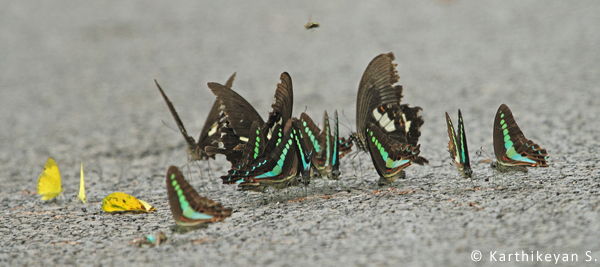
Common Bluebottles, Red Helens and Grassyellows on the road.
Once I was done, the vehicle slowly started rolling. As expected, the butterflies took to flight. I took a closer look at the spot where the butterflies had congregated. What attracted the butterflies to that particular spot was not very apparent. Perhaps they were feeding off the damp surface from a recent spell of rain.
This set me thinking about the number of occasions when I had seen such butterfly get-togethers as we continued on our way. At the same time I was also amazed at the transformation – from caterpillar to butterfly; from chewing mouth parts to sucking; from solid food to liquid diet! This means that anything a butterfly consumes has to be in a liquid state or in a dissolved state.
Butterflies, particularly the males, find dissolved salt very attractive. Therefore, on damp sand or mud, one can often see large congregations comprising of a few hundred individuals jostling for space or at times, there may be just a few individuals. This kind of congregation is referred to as mud-puddling. Particularly, good places to see butterflies indulging in this activity would be at the edge of streams or ponds.
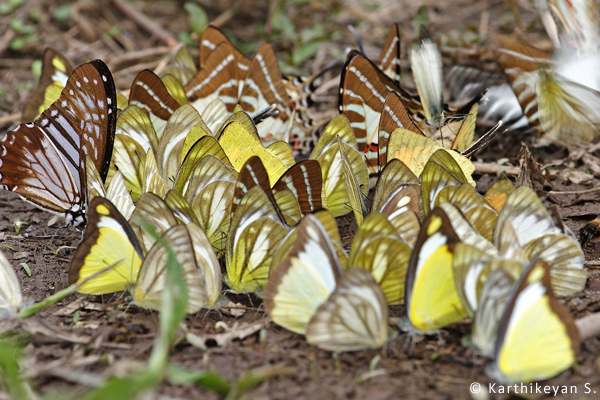
Some mud-puddling Pieriids and Papilionids.
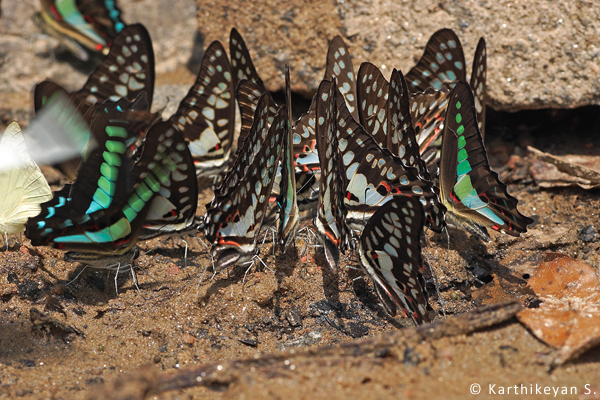
Common Bluebottles and Common Jays congregating.
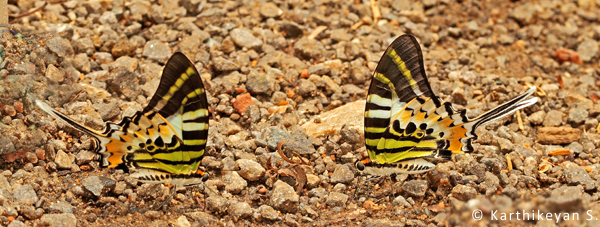
A pair of Five-bar Swordtails.
Many butterflies spend a long time mud-puddling imbibing dissolved salts. During this process, they can be seen sucking water actively and also expelling water either as drops or jets.
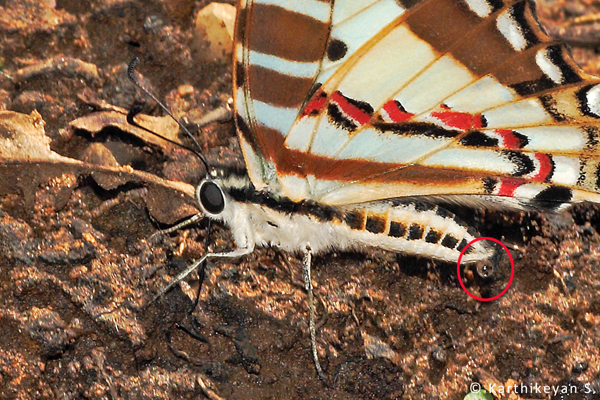
A Spot Swordtail expelling drops of water while mud-puddling.
At times, they extend their proboscis backwards and suck up the same liquid that they expelled. Why they do this, is still a mystery.
In search of salt, butterflies and at times day-flying moths get attracted to human sweat too!
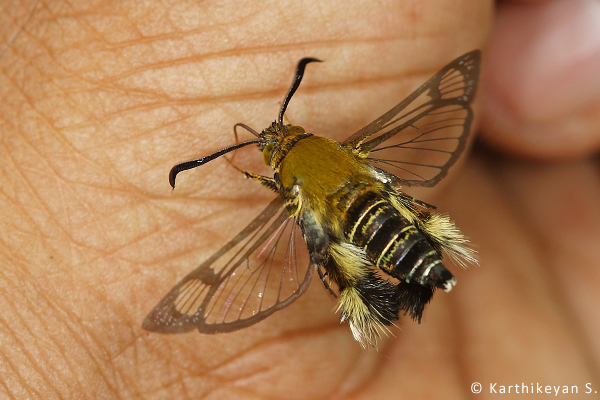
A day flying moth attracted to sweat on my palm.
If you are lucky and patient, they could spend time exploring your face!
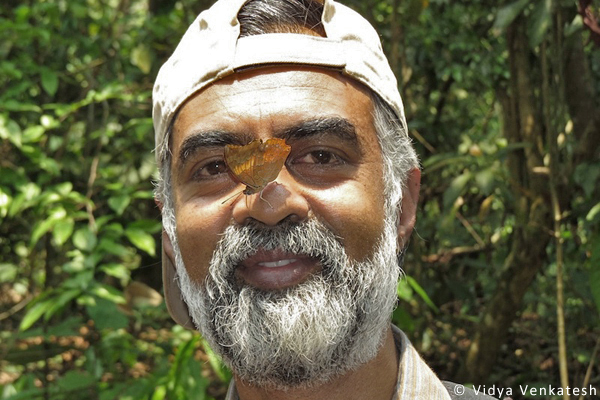
Butterfly exploring my nose laden with sweat!
Many butterflies can be seen visiting oozing tree sap, rotting fruit, dead animals, animal / bird excreta, etc. These could also act as alternate sources of energy for butterflies. Some butterflies never visit flowers!
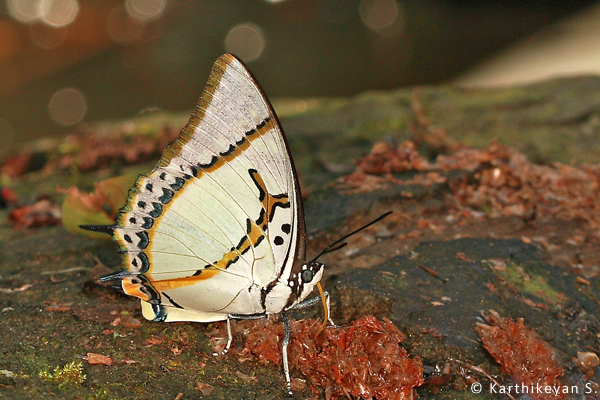
Great Nawab drinking from an animal excreta.
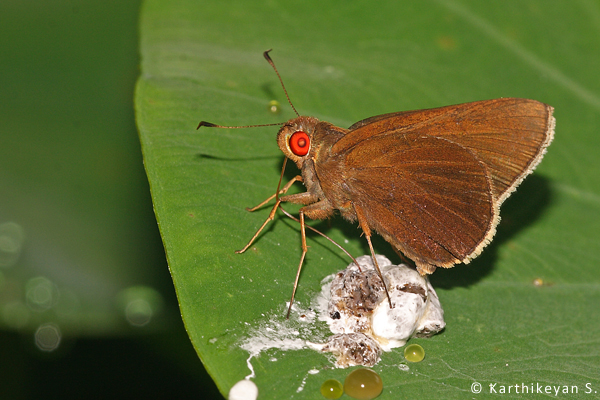
Common Redeye – wetting a dry bird dropping with a drop of excreta and sucking from the resulting soup.
With some careful observation, it can be seen that different groups of butterflies have different preferences. However, mud-puddling congregations are large. The next time you espy one such gathering, spend time watching them. You will be treated to plenty of activity. With a slight disturbance, many of them take off only to return. Sometimes, you can see several flying one behind the other in a ‘follow the leader’ fashion; expect to be treated to this and much more – if only you have the patience to sit and watch!